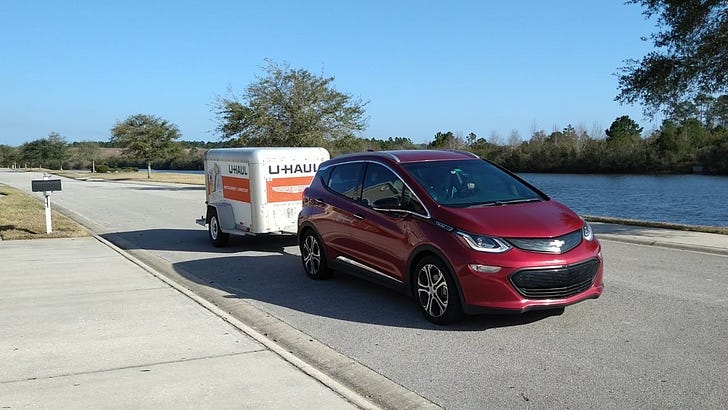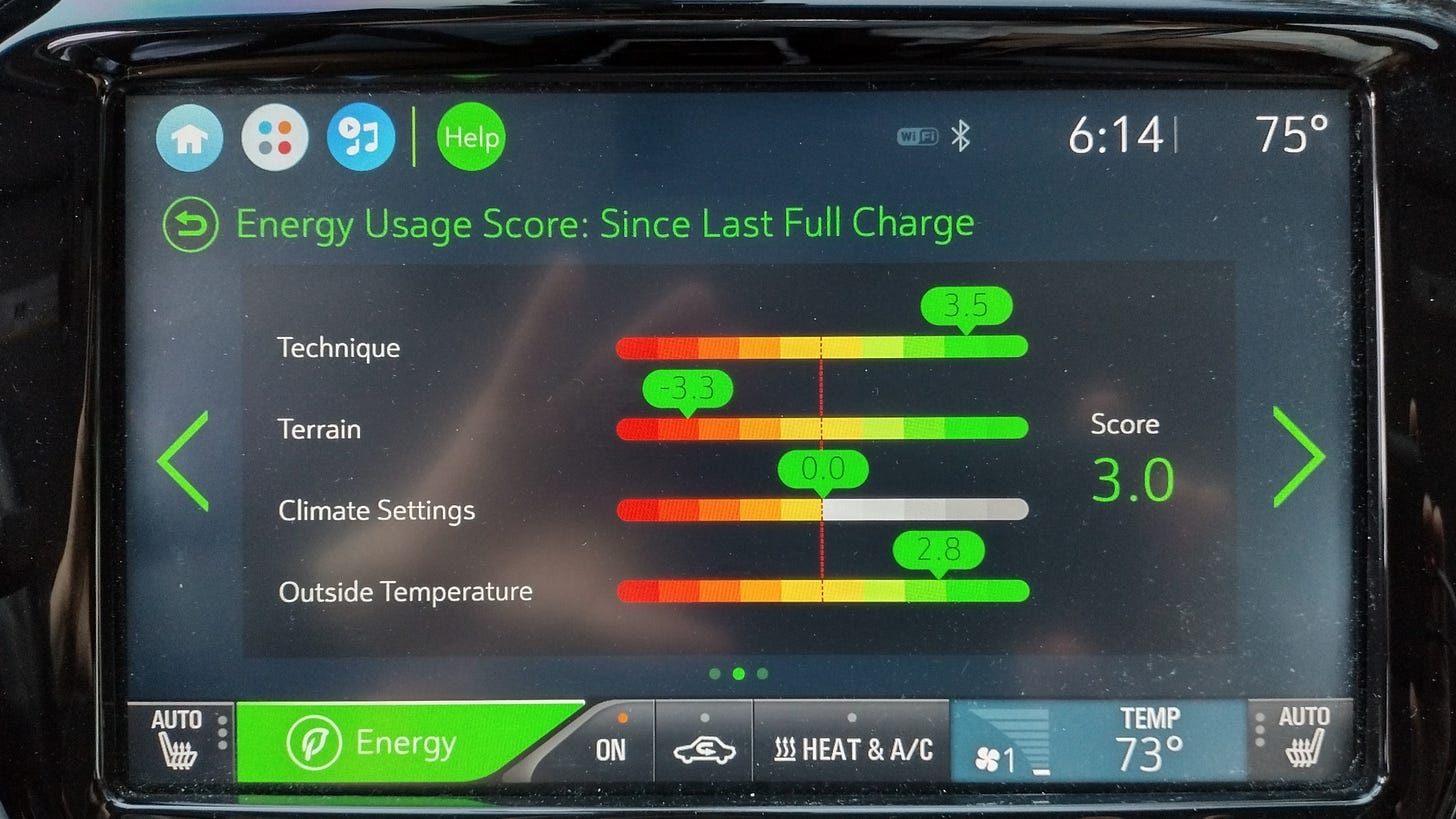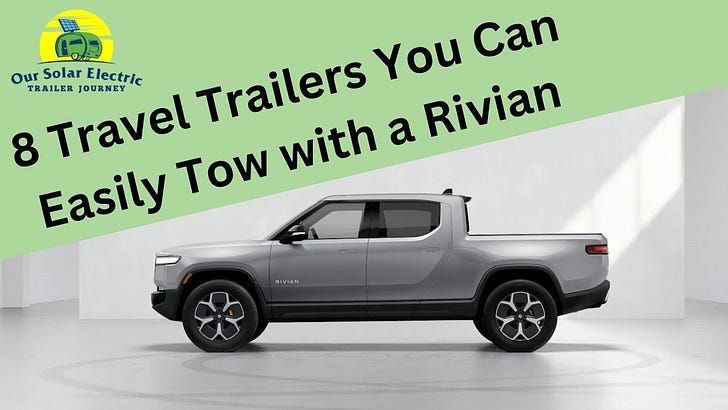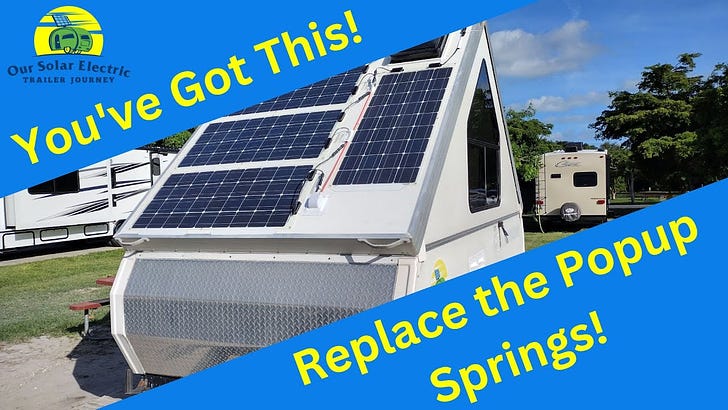We are excited to report that we completed a test tow with our 2017 Chevrolet Bolt EV!
For the test, we rented a 4x8 Uhaul trailer weighing 850 pounds. We visited Ikea and quickly found 407 pounds of boxes reportedly containing furniture and loaded it in the trailer.
The total weight of 1,257 pounds exceeds the dry weight of the Aliner Scout Lite popup trailer we hope to buy. Notably, it is a similar shape and size. In other words, this was a pretty good practice run.
All went well. We had no issues stopping or starting.
Notably, the Uhaul trailer has no brakes. Most trailers do, of course. The implication isn’t all bad. Without conventional brakes on the trailer, the electric motors get the full weight of the rig, pushing it forward on the stops, allowing the car to regenerate more electricity on the stops. We used the brake pedal on the Bolt once or twice, but the vehicle may not have engaged the disc brakes. The car only does so when the motors are generating their maximum electric capacity, and the driver pushes even harder on the brake pedal.
Data Dump for Nerds
We tracked a trip of 36.1 miles, the first 4.6 of which were without the trailer. The car tracks some data between every full charge, so we started the tracking at home; thus, it includes the trip to Uhaul. As a result, 88 percent of the distance reflected having a trailer in tow.
During the trip, we used 8.4 kilowatt-hours (kwh) of electricity, averaging 4.3 miles per kwh (mpk). Given that our long-term average is 4.1 mpk, the load was not overwhelming.
The car scores every trip on four criteria, all on a -5 to 5 scale:
Technique: 3.5. That score is excellent. I always try to get above zero, but above three is rarified air indeed. A trip at freeway speeds will often drop below zero.
Terrain: -3.3. This score is terrible. Of course, cruising around level-everywhere Florida, the score reflects the trailer’s weight, not the topography.
Climate Settings: 0. We didn’t turn on the air conditioner. The temperature was in the low 80s to begin and cooled to the mid-70s when we returned the trailer early in the evening. The climate system uses a remarkable amount of juice, especially in stop-and-go traffic.
Outside Temperature: 2.8. The car loves hot weather. Around 100 degrees, the vehicle begins to cool the battery, but we think that is a safety measure more than a performance one. The battery likes hot weather. Of course, when it is warmer than yesterday, we’d have to turn on the A/C, which uses more juice. As a result, 75-degree weather is just about perfect.
The car calculates the average mpk every five miles. The bar on the far right reflects the current calculation. The displayed estimate of 6+ mpk is fluky and may represent a short stretch of the trip. Ignore it.
The first six bars counting backward from right to left reflect the 30 or so miles we towed the trailer. Although it is inexact, you can see we averaged about 4 mpk while towing. That compares to 5+ mpk over the 20 miles or so before we hooked up the trailer. The difference is at least 20 percent.
If we use 25 percent as the difference, that is fantastic news! At freeway speeds in pleasant weather, the Bolt has a range of about 200 miles. Losing a quarter of that would leave us at 150 miles. We could potentially travel 250 miles in a day with just one charging stop. We’re excited.
There is a lot to see within 250 miles. If the trailer tows that distance well, we could be convinced to try a two-day travel trip, expanding our travel range to 500 miles. That’s a lot of territory to explore.
That range includes Biloxi, Missippi; Mobile, Alabama; Plains, Georgia; Key West, Florida; Wilmington, North Carolina; Myrtle Beach, South Carolina and even Chattanooga, Tennessee!
Check back with us next week when we give you a complete rundown of the trailers we considered and why we’ve tentatively chosen the little Aliner Scout Lite.



















Share this post